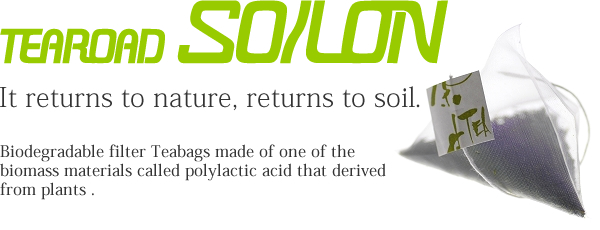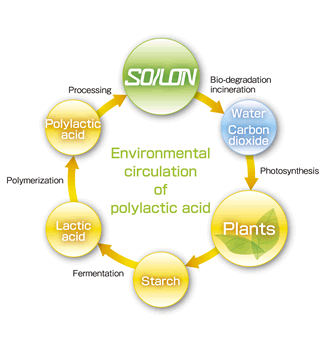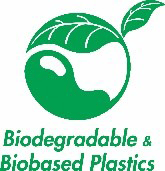TEAROAD® SOILON®

As a manufacturer who supplies filters for beverage purposes, Yamanaka Industry considers user's safety and security to be of the highest priority.
At an early stage, we tackled the development of environmental circulation type filters for drinking use that are derived from plants, and were the first to introduce the world to "SOILON," which we created from a biomass material (polylactic acid) whose basic material is plant starch.
Charactaristics
Environmental circulation of polylactic acid


- Using plant starch as its base material, this product is manufactured through processes that include lactic acid fermentation and polymerization (for polylactic acid). The result is then rendered into fibers and woven together. Its uniform opening affords the product a superior level of permeability, making it perfect for tea bag filters used with tea leaves.
- No harmful matter is detected upon extraction using boiling water. Deemed to be compliant with food, additive and other standards under the Food Sanitation Act (No. 370).
- Upon burying SOILON in the ground, following hydrolysis, the matter is completely broken down by microorganisms, after which it is eventually turned into water and CO2 (materials cited). The speed of degradation varies largely depending on the temperature, moisture and PH level of the soil, as well as the types and number of microorganisms present.
- When burning SOILON,the harmful gas (dioxin etc.) is not generated. Also the generation of greenhouse gas (carbon dioxide) is less than usual plastic. (reference literature)
- Polylactic acid, the material used in SOILON, has reported to have bacteriostatic and mildew-proof properties.
- Being primarily composed of renewable plant materials, it contributes to the development of a sustainable society. Consequently, it has obtained the Biodegradable Biomass Mark (No.243).
- What is biodegradable biomass plastic
 "Biodegradable Biomass Plastic refers to products that meet the criteria for both biodegradable plastic and biomass plastic as defined by the Japan Bioplastic Association (JBPA)."
"Biodegradable Biomass Plastic refers to products that meet the criteria for both biodegradable plastic and biomass plastic as defined by the Japan Bioplastic Association (JBPA)."